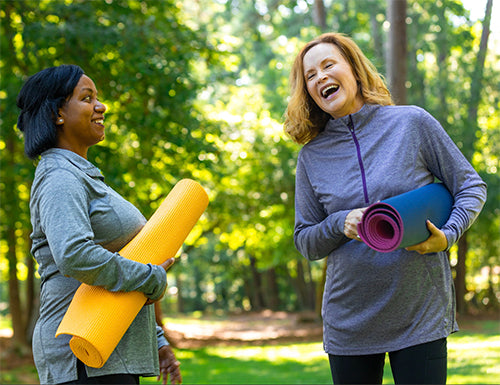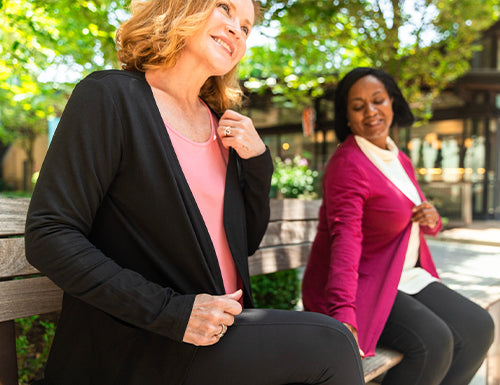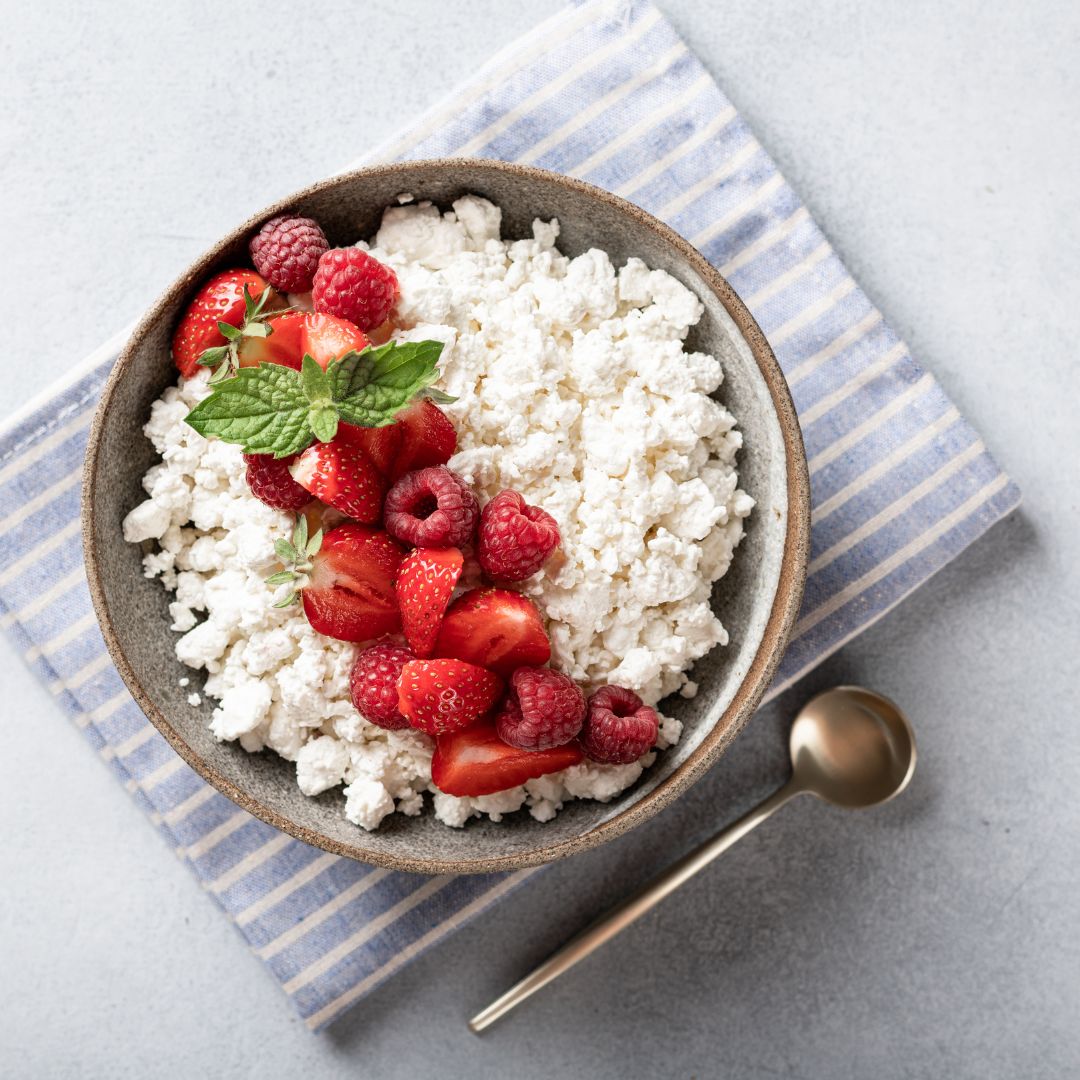Getting a good night's sleep can feel like an elusive goal. And it gets even harder the older we get! Many factors contribute to sleep difficulties in older adults, especially for women. Hormonal changes from menopause, managing chronic health conditions, increased stress and anxiety - they can all take a toll on sleep quality. Fortunately, the strategies below have been proven to help improve sleep and allow you to wake up feeling rested and rejuvenated.
- A Relaxing Bedtime Routine: Creating a consistent, calming pre-bed ritual helps signal your mind and body that it's time to prepare for sleep. The Mayo Clinic recommends taking a warm bath, reading a book by soft lamplight, practicing light yoga or meditation, or listening to soothing music. While these activities may sound indulgent, these activities can promote better sleep onset and quality when performed in the final 1-2 hours of your day. Think of it as chores that you actually enjoy!
- Optimize Your Bedroom: While it may seem like a small thing, cultivating a bedroom setting that is cool, dark, quiet, and comfortable can have a major impact on your ability to sleep soundly. The National Sleep Foundation suggests keeping your bedroom temperature between 60-67°F, using blackout curtains or an eye mask to block light, and minimizing potential noise disturbances.
- Limit Caffeine, Alcohol, and Large Meals Before Bed: Many of us know that caffeine is a stimulant that interferes with sleep, but it's also wise to be mindful of alcohol and big, heavy meals in the evening. While alcohol may help you fall asleep initially, it can disrupt your sleep later in the night as it is metabolized. The National Institute on Aging recommends eating dinner at least a couple of hours before bedtime and avoiding heavy, fatty meals that can cause indigestion and keep you awake.
- Regular Exercise: According to experts at Johns Hopkins Medicine, maintaining an active lifestyle with daily exercise has been shown to improve sleep quality, Getting your heart rate up through activities like walking, swimming, or cycling during the day can help you feel more tired and ready for bed at night. However, they advise avoiding intense exercise right before bedtime as it can act as a stimulant.
- Consider Sleep Supplements: Melatonin is a hormone that your body produces that helps regulate your internal sleep-wake cycles. Many women find that as they age, taking a melatonin supplement a few hours before bed can help induce sleepiness, allowing them to fall asleep faster. Other over-the-counter sleep aids like valerian root, glycine, or magnesium may also be beneficial when approved by your doctor. The Cleveland Clinic suggests starting with small doses and being patient, as it can take a few weeks to experience their full effects.
Implementing just a few of these proven strategies could help you overcome difficulty getting a good night of sleep. Don't let poor sleep keep dragging you down! Make it a priority to develop better sleep habits as you move into your later years. You’ll thank yourself in the long run.




